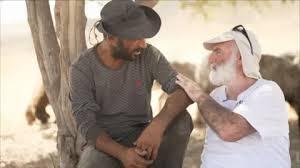
Table of Contents
Confronting Violent Settlers in the Occupied West Bank: A Joint Struggle for Peace and Justice
Introduction
The occupied West Bank, a region steeped in history and conflict, continues to be a flashpoint in the Israeli-Palestinian conflict. In recent years, the issue of violent settlers has escalated tensions, posing significant challenges to peace and security in the region. These settlers, often motivated by religious and nationalist ideologies, engage in aggressive actions against Palestinians, leading to destruction of property, physical harm, and deepening mistrust. In response, a growing number of Israelis and Palestinians are uniting to confront this violence, advocating for justice and human rights in a land torn by division.
The Rise of Settler Violence
Settler violence in the West Bank has become a disturbing and increasingly frequent occurrence. These settlers, residing in illegal outposts according to international law, often take the law into their own hands, attacking Palestinian farmers, vandalizing homes, and destroying olive groves, a vital source of livelihood for many Palestinian families. Such attacks are not only physical but also psychological, contributing to an environment of fear and intimidation that exacerbates the already fragile situation.West Bank
Joint Israeli-Palestinian Efforts to Combat Settler Violence
In the face of rising violence, an inspiring movement of cooperation has emerged, bringing together Israeli and Palestinian activists who are committed to confronting settler aggression through peaceful means. These joint efforts represent a powerful symbol of unity in a region deeply divided by politics, religion, and history.
1. Protective Presence Initiatives:
One of the key strategies employed by these activists is the establishment of protective presence initiatives. Israeli and international volunteers accompany Palestinian farmers to their fields, particularly during the olive harvest season, to deter settler attacks. Their presence acts as a non-violent shield, making it less likely that settlers will engage in violence when witnesses are present. These initiatives not only help protect Palestinian livelihoods but also build solidarity between the two communities.
2. Legal Advocacy and Documentation:
Another significant aspect of the joint efforts is legal advocacy and documentation of settler violence. Israeli human rights organizations, such as B’Tselem and Yesh Din, work alongside Palestinian groups to document incidents of violence, gathering evidence that can be used to hold perpetrators accountable. This documentation is crucial in bringing international attention to the issue and pressuring the Israeli government to take action against violent settlers.
3. Peacebuilding and Dialogue:
In addition to direct action, many activists are engaged in peacebuilding and dialogue initiatives aimed at fostering understanding and cooperation between Israelis and Palestinians. These efforts often involve bringing together members of both communities to discuss their experiences, share their stories, and work towards common goals. By focusing on shared values and aspirations, these dialogues help to break down stereotypes and build trust, laying the groundwork for a more peaceful coexistence.
Challenges and Risks
While the joint efforts to confront settler violence are inspiring, they are not without challenges and risks. Activists on both sides face significant dangers, including harassment, arrest, and violence from settlers and, in some cases, from Israeli security forces. The political landscape also presents obstacles, with hardline elements within the Israeli government and settler community seeking to undermine these efforts.
Moreover, the asymmetry of power between Israelis and Palestinians complicates these collaborations. Palestinians living under occupation face daily hardships and systemic discrimination, which can make cooperation difficult. Ensuring that these joint efforts are based on mutual respect and equality is essential for their success.
International Involvement and Support
The international community plays a crucial role in supporting efforts to confront settler violence. Governments, international organizations, and NGOs can provide financial assistance, diplomatic pressure, and on-the-ground support to Israeli and Palestinian peace activists. International observers can also help document violence and human rights abuses, providing an additional layer of protection for those involved in these efforts.
The role of international law is particularly important. The Fourth Geneva Convention, which prohibits the transfer of an occupying power’s civilian population into the territory it occupies, clearly applies to the situation in the West Bank. International advocacy for the enforcement of this and other relevant legal frameworks is essential in addressing the root causes of settler violence.
The Broader Struggle for Peace and Justice
Confronting settler violence in the West Bank is not just about stopping immediate acts of aggression; it is part of the broader struggle for peace and justice in the Israeli-Palestinian conflict. The presence of settlers in the West Bank is a significant obstacle to the two-state solution, a goal that many see as the best path to a lasting peace. The continued expansion of settlements and the violence associated with them only deepens the divide between Israelis and Palestinians, making the prospect of peace more remote.
Conclusion
The joint Israeli-Palestinian efforts to confront violent settlers in the occupied West Bank represent a courageous and necessary response to a pressing humanitarian issue. By standing together, these activists challenge the cycle of violence and retribution that has plagued the region for decades. Their work is a powerful testament to the possibility of solidarity and cooperation in the pursuit of peace and justice.
While the road ahead is fraught with challenges, the determination and bravery of those involved in these efforts provide a beacon of hope. As they continue to confront violence and advocate for the rights of all people in the region, they lay the groundwork for a future where peace is not just a distant dream but a lived reality. Through their actions, they remind us that even in the most difficult circumstances, it is possible to choose a path of non-violence, solidarity, and mutual respect.







